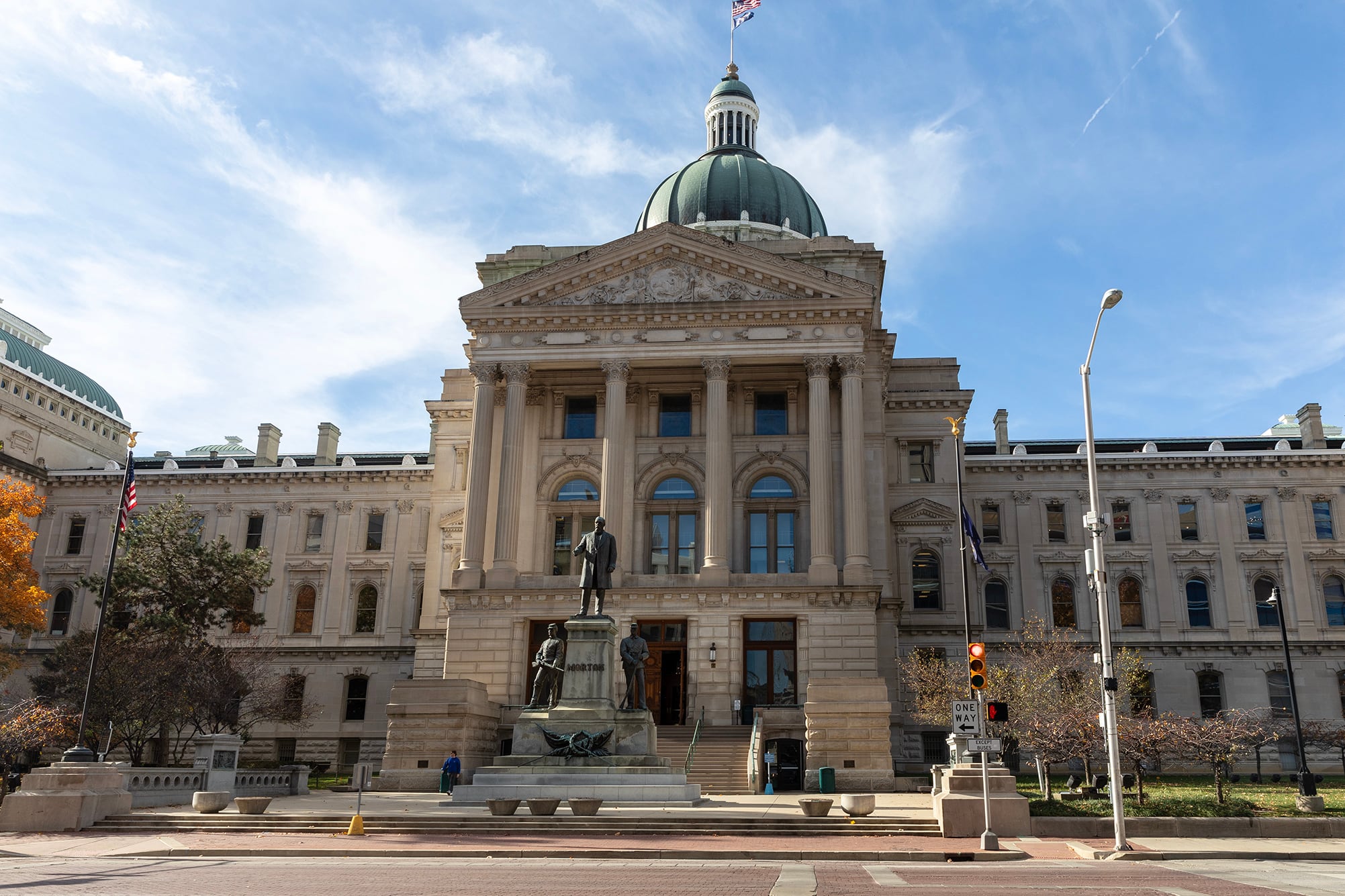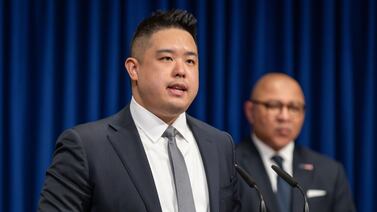Sign up for Chalkbeat Indiana’s free daily newsletter to keep up with Indianapolis Public Schools, Marion County’s township districts, and statewide education news.
Update: The Indiana legislative session ended on March 8, 2024. Here are the education bills that did and didn’t pass.
A school funding bill heard in Indiana’s legislature Thursday proposes to radically reshape the state’s education system by allowing families to use state money to pay for a wide range of services and effectively customize their children’s education.
The bill, Senate Bill 255, is on hold until next year, when lawmakers take up issues tied to the state budget. But its backers say it’s the start of a conversation about expanding school choice in the state, far beyond the scope of existing voucher programs.
For now, few details are available about how the program would work. But depending on how it takes shape and how many students participate, it could have a major impact on K-12 schools, graduation requirements and postgraduate paths, and give Indiana one of the most relaxed school choice policies in the country. And it would add to the financial pressures on public school systems that already stand to lose funding to voucher programs, while they try to improve low reading scores and college-going rates.
Lawmakers have already made nearly all Indiana children eligible for private school vouchers, on the premise that parents should be empowered to determine how educational dollars are spent.
But critics say these voucher programs aren’t reaching the students they were originally intended to help — those from low-income backgrounds who are attending failing schools.
Families could choose programs a la carte
Indiana’s existing voucher programs allow students to use state funding for private school, or for special education services outside of public school. A new program also allocates funding for career training.
Under the new proposal, those programs would be combined into a new program, with relaxed requirements that allow families to use state funding to purchase classes and services a la carte from schools, tutors, and other approved organizations.
So a student could take a chemistry class at a public school, a math class at a private school, and music lessons with a professional musician, said Indiana State Treasurer Daniel Elliott, who spoke in support of the bill at the Senate Appropriations Committee Thursday.
Lawmakers at Thursday’s hearing listened to concerns about the bill from a wide array of groups, including the Indiana School Boards Association, the Indiana Association of School Principals, the Indiana Catholic Conference, and home-schooling advocates.
The bill’s fiscal note estimates that state expenditures would increase by $46 million just for the cost of migrating students from the existing voucher programs to the new funding pool.
Author Sen. Ryan Mishler, a Republican from Mishawaka, said he wanted to begin the conversation about the proposal this year and expects it to continue through the summer.
Mishler notably voiced opposition to last year’s expansion of the school voucher program, citing concerns about a lack of accountability at private schools. In introducing the bill, he said he hoped to offer even more flexibility to Indiana parents.
Elliott agreed.
“If we really want to make a difference, we need to give parents more than two choices,” said Elliott. “We need to give them the option to create their child’s unique educational pathway.”
How the money would move
The grant program in Senate Bill 255 would function like an expanded version of the existing Education Scholarship Account program, which allows families of students with disabilities to use funds on services outside their schools. It would replace the education scholarships, the state voucher program, and the new Career Scholarship Accounts established last year.
Under the bill, students enrolled in a public school could receive 50% of the foundation grant amount — around $3,000 in 2023 — to spend on services outside of their school’s jurisdiction, likely making an impact on their school’s funding. Students enrolled in private school would receive 90% of the foundation grant amount.
They could use the funds to pay for expenses like tuition and fees at a private school, services for a disability, extracurricular activities provided by a school, apprenticeships, and transportation.
While home-schooled students were included in the bill draft, Mishler and Elliott said they would change the bill to exclude them from the funding and the accompanying requirements of state oversight.
Lawmakers raised questions about the additional cost, as well as the increased workload for the treasurer’s office, which would administer the combined program.
Schools may need to price their classes at a credit hour rate, according to Elliott. And parents would be responsible for transporting their children to different schools and classes.
Sen. Shelli Yoder, a Bloomington Democrat, said the transportation issue raised concerns about equity, as parents who can’t drive their children to different schools likely wouldn’t be able to benefit from the program.
Elliott said that it’s likely very few families would take advantage of the program.
Currently around 90,000 students attend private schools in Indiana, compared with over 1 million students who attend public schools. Recent data shows that voucher use grew by 30% over last year, compared with a 5% increase in private school enrollment, suggesting that most of the beneficiaries of vouchers are families whose children are already in private schools.
For the career scholarship accounts, just over 200 students received vouchers in the first year. The program, which offers students state funding to take career training courses outside their schools, is a centerpiece of GOP lawmakers’ plans to “reinvent high school” in 2023.
Senate Bill 255 is not expected to be heard again in the 2024 session.
Aleksandra Appleton covers Indiana education policy and writes about K-12 schools across the state. Contact her at aappleton@chalkbeat.org.








